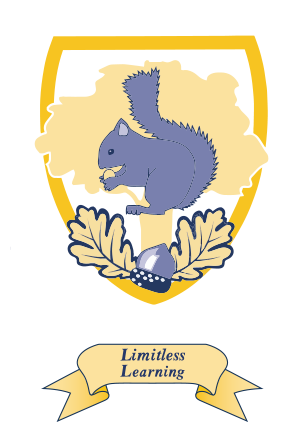Curriculum Statement
STRATEGIC IMPLEMENTATION OF THE CURRICULUM
INTENT
Our Curriculum for Excellence
The curriculum is the totality of all that is planned for our pupils. It is the heart of what goes on in our school. It is what we intend pupils will learn and experience while they are educated in our school. This learning will take place both in and out of the school day.
Vision
Our unique curriculum is thoughtfully planned to enable our learners to gain the knowledge, skills and understanding, together with essential attributes, to take part positively and actively in society and to live happy, fulfilled and meaningful lives.
Purpose
To nurture, encourage and develop individuals who live life to the full and make a positive contribution to society.
Learners who:
- Are well-rounded, independent, responsible and considerate.
- Have a thirst for learning that lasts a lifetime.
- Manage their own lives and make a meaningful contribution to society.
- Develop skills for learning, skills for life and skills for work.
Curriculum Principles
Our curriculum is underpinned by these core principles:
- Embracing innovation and celebrating tradition
- Enjoyment and challenge
- Breadth and richness
- Deep, rich and meaningful first-hand experiences
- Enquiry-led opportunities
- Relevant and purposeful
- Coherence
- Progression and success
- Personalisation and choice
IMPLEMENTATION
Curriculum Organisation:
The National Curriculum Requirements and the Hampshire RE Agreed Syllabus, are an essential part of our curriculum and underpin our framework. All programmes of study are fully covered. Our curriculum is organised around subjects and, where feasible, relevant and efficient, subjects are integrated to make meaningful connections, whilst maintaining the integrity of each subject discipline.
Some subjects or aspects of subjects, such as Music and Art, require frequent re-visiting and continuous practice and are appropriately taught discretely on a daily or weekly basis.
The learning in knowledge-led subjects, such as History, Geography and Science, is organised into units of work called projects and each one develops the knowledge, skills and understanding of the area under study in the subject. These are of varying length, depending on the content to be taught and learned. The projects are usually taught in blocks, so that pupils can fully immerse themselves in the project and see the results of their learning as the work progresses.
Themed-days are based around our curriculum priorities, such as World Book Day or our school TERRIFIC values, and involve the school with an opportunity to work across year groups and classes capitalising on different teachers’ expertise.
From time to time, a day event - whole school, class or year group- will be organised to celebrate an occasion, promote an idea or consolidate learning, for example, Dance Day, Sports Day, Run for Fun, writing day with Chris Connaughton story teller.
Learning goes beyond the classroom, taking advantage of the locality and school grounds, and is enhanced by visitors with specific expertise and wide experiences. These include day trips, extra-curricular clubs and residential visits.
Curriculum Threads:
Throughout the curriculum there are threads woven into the framework which add richness, rigour and depth. The threads evident throughout our curriculum are:
- Experiential learning that is first-hand and practical is central to planned units of work and projects, encouraging independence and collaboration.
- Enquiry that leads investigations into new areas of learning, connecting information and sifting evidence to arrive at authentic conclusions.
- Time is planned for pupils to become absorbed in an area of study allowing for enquiry, investigation, discovery and ‘digging deep’ into unknown information.
- Personal interests are fostered by extended enquiry, choice and personalised learning, both in the classroom and at home.
- Dialogue and discussion are used to extend ideas, broaden horizons and build connections.
- Resources extend learning and provide the means for practising skills in relevant contexts and extending knowledge and understanding.
- Extra-curricular clubs cater for a broad range of interests and are offered at different times of the day and are run by teaching staff and outside providers.
- Whole school events bring out individual talents, provide unity and secure high levels of commitment.
- Community involvement, through projects such as the Ringwood Carnival, Christmas Shoebox Appeal and Ringwood Foodbank, increases a sense of belonging and responsibility.
IMPACT
The impact of the curriculum is measured in standards achieved, progress made and personal qualities acquired. The impact of our curriculum is seen in:
- High standards: consistently performing at above national and Hampshire averages.
- Progress which build incrementally year-on-year at a pace and momentum appropriate to the learner.
- Quality experiences which are memorable, worthwhile and challenging.
- Teaching which is rigorous, personalised, innovative and learning-centred.
- Learners that are resilient, questioning, resourceful, self-sufficient.
- Self-aware learners, with well-formed characters, who have a thirst for learning and see it as a route to maximising their life’s chances.
- Individuals who value and respect one another and demonstrate the TERRIFIC values in action.
Means of Measuring Impact:
The curriculum is regularly reviewed, developed, monitored and evaluated by the Headteacher, School Leadership and Management Team, external advisers and governors, leading to improvements and innovation.
Subject leaders take responsibility for ensuring coverage, progression and standards through long and medium-term planning, promoting the subject and developing the teaching methodology and securing high quality resources. They regularly monitor and evaluate learning, teaching and the curriculum.
Planning is detailed, regular and collaborative and prepares teachers so they provide a coherent, personalised learning experience.
Assessment is both formative and summative and progress and attainment are regularly tracked.
